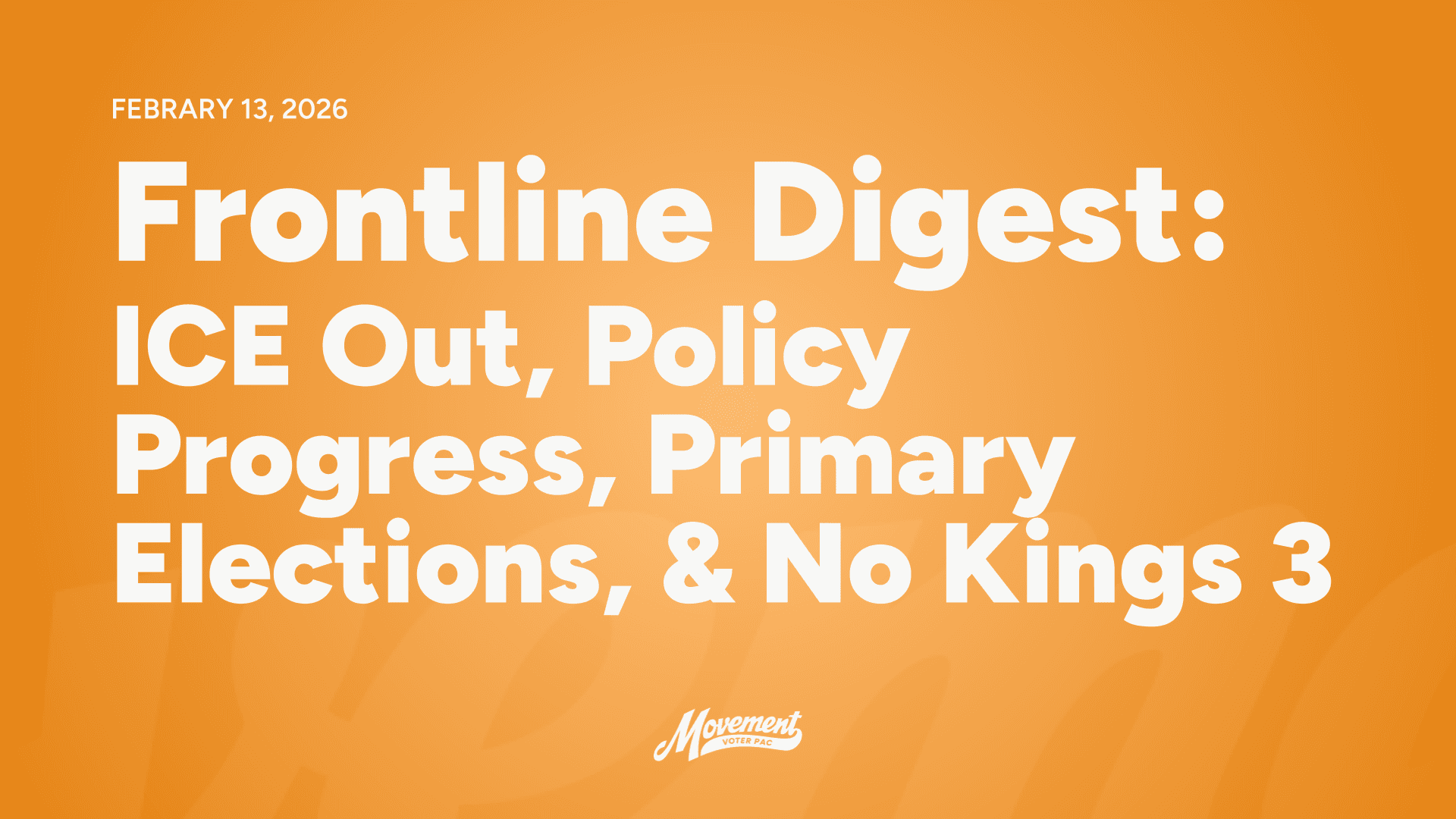Reproductive rights — including the right to birth or not to birth children — are integral when it comes to achieving gender equality. On June 24, 2022, the Supreme Court stripped women and people across the country of those rights.
The SCOTUS decision to overturn Roe Vs. Wade has already had a swift and devastating impact on communities nationwide. This is especially true for BIPOC, low-income, rural, and LGBTQ+ communities who already face disproportionate barriers to health care. We all know that banning abortions only ends safe ones. The decision also infringes upon the first amendment rights of Muslim and Jewish Americans, whose religious views permit abortions.
Though we are devastated, here’s how we’re fighting back.
In some regions across the country, just one or two states allow access to abortion health services, forcing people to travel hundreds of miles for care. But, the recent victory for abortion rights in Kansas shows that even in traditionally red states, people will show up to the polls in historic numbers to defend reproductive rights.
Defending and expanding reproductive rights involves an entire ecosystem of nationwide movement work. This encompasses the incredible work of national champions like Planned Parenthood and the network of care provided by the National Network of Abortion Funds, independent clinics, Plan C, and many others.
Working with our state advisors and grassroots partners across the country, MVP has identified the most critical states that we’ll focus on to impact policies and win elections.
Here are the strategies for some of those states below:
Arizona
In April, the Republican trifecta government in Arizona passed SB-1164, which bans abortion after the 15th week of pregnancy. A six-week ban — or an outright ban — could go into effect in response to the Supreme Court decision if Republicans maintain unified control. Breaking the Republican trifecta in the state would ultimately help stop bad reproductive justice policy.
Next steps: Democrats will need to win the governor’s race and/or tie one of the chambers of the state legislature (we are currently one seat short of a tie in both chambers) in order to prevent a 6 week ban or similar laws from being passed in early 2023.
Immediate opportunity: Invest in AZ Wins (C4) to expand grassroots organizing and voter engagement in key swing districts in advance of November.
Georgia
Georgia law currently bans abortions at 20 weeks, although the state passed the Living Infants Fairness and Equality (LIFE) Act in 2019, banning them at six weeks. This “heartbeat bill” was struck down in 2020 due to non-compliance with Roe. Now that Dobbs has formally overturned Roe, the 11th Circuit is free to lift its ban. Georgia's Attorney General Chris Carr has asked the 11th Circuit Court of Appeals to let the state's law take effect. Governor Kemp may also call a special session to enable the Georgia Legislature to pass more restrictive laws, but it is highly possible that he will push it until the 2023 session.
Next steps: This is a key moment to engage Georgia’s new voter base — young adults and BIPOC communities. Grassroots organizations have laid the foundation, but expanding field canvasses, phone and text banking, and digital campaigns will be critical going forward.
Immediate opportunity: Provide funding to reproductive justice grassroots organizations that are mobilizing voters around abortion justice. Lead campaigns pushing existing District Attorneys to pledge not to prosecute abortion-related cases. MVP’s priority reproductive rights group in the state is New Georgia Project Action Fund.
North Carolina
North Carolina is the only state in the Southeast where pregnant people and women can still access abortion rights at any time. However, this is protected by a narrow margin in the state House and Senate. If Republicans gain a supermajority in both chambers, they will have the ability to override the Governor’s veto in 2023 and 2024.
Next steps: Our partners are mobilizing canvass programs to engage voters — particularly BIPOC communities and young adults — in competitive districts, with the goal of preserving a large-enough minority to thwart veto override power.
Immediate opportunity: Invest in Carolina Federation and Emancipate Votes to advance voter contact programs specifically for the Supreme Court races. Invest in expanded grassroots organizing and voter contact in key swing districts with existing partners, including Down Home NC, Emancipate Votes, and Ignite Action Fund.
Pennsylvania
In Pennsylvania, abortion is currently legal up to 24 weeks, but the fate of abortion access is in the hands of voters in the upcoming Governor’s race. The highly competitive race includes a Republican candidate who has promised to end abortion. Winning the Governor’s race in Pennsylvania will be critical to act as a backstop, beyond 2022 and heading towards 2024, for abortion and other critical issues.
At the same time, Republican legislators are looking at a veto workaround to ban abortion. In Pennsylvania, the legislature can put a question on the ballot after it has passed both chambers in two consecutive sessions. We anticipate the Republican-held legislature to pass abortion restrictions in 2022 and again in 2023, allowing it to go to for a popular vote on the ballot in the 2023 primary or general election.
Next steps: Significant grassroots organizing efforts will be needed to prevent the abortion ballot question from passing on the 2023 ballot. Continued expansion of voter outreach and education programs to key constituencies — particularly BIPOC communities — will be key to winning the 2022 election.
Immediate opportunity: Invest in continued and expanded voter outreach and education, with a focus on Black women. Support continued base-building efforts in large cities with 1Hood Power, 215 People’s Alliance, and One PA. Support continued base-building in smaller cities with Democratic electorates that need additional turn-out support through Make the Road, PA Stands Up, POWER Action Fund, CASA, and PA United.
For more information on next steps in Kentucky, Michigan, Minnesota, Texas, and Florida, check out the full version of this memo here.




